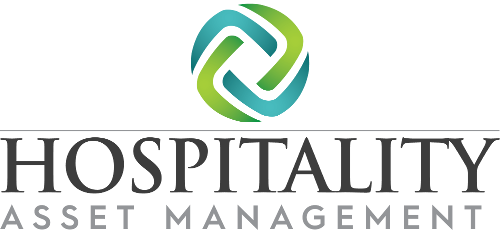Responding to Chargebacks is a Necessary Part of Managing Costs.
Date: August 5th, 2021
Written by Alecia Boyce, CHBA; CHRM; CHIA
As many hotels are continuing to perform below pre-COVID levels, managers and owners are keeping a close eye on property expenses to ensure they are operating at optimum levels given their current occupancy situations. Hotels are focusing on payroll and utility costs, food costs if they are offering breakfast, linen costs and other various expenses that come with the day-to-day operating of hotel facilities.
One hotel cost, however, remains frequently overlooked. That is the cost of the hotel chargeback. A chargeback occurs when a customer or guest disputes a charge on his or her payment card, thus resulting in the monies being charged back from the hotel and returned to the guest. While some chargebacks are small, many are not. And even small chargebacks can add up over time if they are frequent, thus adding what is often an unnecessary financial loss to a hotel.
There are a number of reasons that a guest would choose to charge back the amount billed by the hotel, either in part or in full. Some reasons given for hotel chargebacks are that the stays didn’t happen, the guest was not happy with the stay, the guest was billed the wrong amount, the guest didn’t recognize the charge, the charge was fraudulent and so on.
Below are some specific explanations of why a chargeback may have occurred, as well as how to respond to the chargeback, and more importantly – how it could have been prevented in the first place and how it can be prevented in the future if a chargeback has been received.
The guest charged back an amount because the stay didn’t happen
Why it happened – The primary occurrence of chargebacks due to stays not actually occurring is in instances where the hotel has charged a guest a no-show fee. This fee is incurred when a reservation is booked, but the guest never arrived and did not call to cancel or otherwise change the reservation.
How to respond – Provide documentation of the hotel’s cancellation policies, no-show policies, etc. Provide evidence that the stay was booked, and if available, documentation that the guest acknowledged and agreed to these policies at the time the reservation was made. Provide a folio indicating the charge was a no-show charge.
How to prevent the chargeback – Ensure the hotel is upfront regarding its cancellation and no-show policies. Agents should address this when taking reservations over the phone, and it should be clearly posted on all online booking channels. Notify the guest in writing at the time of booking that there will be a one-night charge for any reservation that is not cancelled for which the guest does not arrive. Require guests to acknowledge and accept these policies on bookings that are made online as part of the reservation process.
The guest charged back an amount because they were not happy with the stay
Why it happened – Guests expect that they will receive what the hotel says it will give. Just as a customer will withhold a tip from a server in a restaurant if they feel he or she did not provide adequate service, many guests will also attempt to charge back all or a portion of a hotel stay for subpar service, or if the hotel simply did not provide what was offered at the time of the booking.
How to respond – It’s very likely that the chargeback is not the first time a hotel is hearing about the guest’s complaints although that is possible in some instances. The hotel should provide documentation of complaints received from the guest and what was done to mitigate the circumstances. If a discount was already given, provide a receipt. If the guest was offered a certificate for a future comped stay, provide a copy of it. If the guest was upgraded to a better room at no extra charge or comped a meal in the restaurant, provide documentation of this. If the guest submitted a review that his or her stay was fantastic, provide a copy of it.
How to prevent the chargeback – This type of chargeback is especially prevalent during and-post pandemic, and communication is key to preventing this type of chargeback. Hotels must ensure that what they are offering and what they are advertising is one and the same. If a property says it offers a full hot breakfast but is only giving a cold to-go breakfast bag, chargebacks are likely. Even if a hotel verbally communicates the change to the guest, if it is still in writing online that a hot breakfast (or daily housekeeping, regular restaurant hours or any of a number of changed items) are offered when the hotel knows that they will not be, guests are going to charge back their stays.
In addition, be responsive to guest’s complaints. If a guest approaches the hotel about issues during the stay, address them. If guests write negative reviews, respond. If they ask for 20% off their stay for the problems they faced, weigh whether the cost of a chargeback is worth saying no. Most guests – especially those staying more than one night – will make the property aware of problems so that they do not have to endure them for the full stay. Listen, respond and make it right – or be prepared to respond to a chargeback.
The guest was billed the wrong amount
Why it happened – There are a number of reasons this can occur. A guest may be quoted a rate by one agent and then book with another and wrongly assume the second agent was aware of the quoted rate. A guest may have a group rate, but mistakenly be booked outside of the group block and charged rack rate instead. Or the rate may be correct, but the guest was not made aware of the hotel’s policies regarding authorizations and so he or she may think there was an additional charge when there was not.
How to respond – Provide documentation of quoted prices, invoices, group rates, etc. Provide a copy of the guest’s folios and records of authorizations. Provide a signed registration card which shows the cost of the stay and anticipated fees, as well as a stated policy of debit and credit card authorizations. Provide a signed document acknowledging and accepting the hotel’s policies for nightly incidental authorizations. Ensure that online bookings are presenting terms and conditions and fee amounts and that the guest is acknowledging and accepting them at the time the reservation is made. In the event an error was made and the guest was already refunded, provide proof.
How to prevent the chargeback – If an agent is quoting a special price by phone, make every attempt to book the reservation then to prevent miscommunication between other agents, or provide a quote in writing that the guest can submit to the booking agent. Double check group rooming lists to ensure all guests who should be booked within the block actually are. If a guest books outside of the dates the block is open, make it abundantly clear – preferably in writing and always in advance – that they will not be receiving the group rate. Advise guests of authorization and incidental policies at the time of the reservation, at check-in and in writing, and get the guest’s signature acknowledging the amounts are correct on the final folio.
The purchase was fraudulent
Why it happened – The guest’s card was stolen, or, more frequently, the card was not swiped.
How to respond –Provide whatever proof is available to show the guest was actually at the hotel, and that the guest did stay and the credit card used was authorized for use by them (such as a registration card with the last four digits of the card with a signature that matches that of an ID). Provide a signed credit card authorization form.
How to prevent the chargeback – Because these types of chargebacks are especially difficult to refute, it is imperative that a hotel focus on preventative measures. Match the credit card to the person providing it – the name on the card needs to match the name on the ID, and the photo on the ID needs to match the person physically standing at the front desk. If somebody is booking a stay for another person, send him or her a credit card authorization form for use during the stay. (Remember to stay within PCI compliance standards when receiving and storing all such forms.) Ensure that incidentals are billed to the correct card if they are not authorized on the card presented for the room. Look at the results when cards are authorized. If the card is declined, a reason code may be available. Follow up with the bank if necessary or get an alternate payment method from the guest. If the property has a chip reader, use it – always. If not, the property needs to ensure the card is swiped. These chargebacks are difficult to dispute, but they are easy to prevent if the hotel has an established procedure for the acceptance and processing of credit and debit cards and sticks to it.
Chargebacks are not new, but they are unfortunately a part of doing business, and they are here to stay. Hotels that are communicating well, ensuring they are providing quality stays and offering amenities in-line with what they are advertising will likely see fewer chargebacks than others or at least have an easier time refuting them. The same is the case for hotels following company policies and PCI compliance standards.
At the end of the day, though, no hotel is immune to chargebacks, so it is imperative to note when they happen and to not ignore them. All chargebacks come with detailed information as to why they happened, how they can be refuted and the deadline by which this must be done. While not all chargebacks will be reversed during the dispute process, a responsible hotelier will never brush off a chargeback and will consider responding to be a necessary part of managing expenses.


